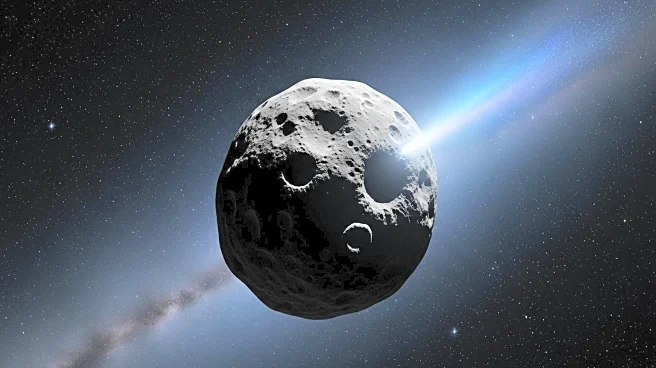What's Happening?
Recent research has revealed that the parent body of the near-Earth asteroid Ryugu experienced fluid activity much later than previously thought. The study, conducted by Tsuyoshi Iizuka and colleagues, analyzed rock samples collected by Japan's Hayabusa2 probe, which returned to Earth in December 2020. The findings indicate that liquid water flowed through the asteroid's rocks over a billion years after its formation, challenging previous assumptions that water activity on asteroids was limited to the early solar system. The research utilized isotopic analysis of lutetium and hafnium to date the geological processes, revealing unexpected fluid movement triggered by an impact event.
Why It's Important?
This discovery has significant implications for our understanding of planet formation and the origins of Earth's water. The prolonged presence of water on Ryugu's parent asteroid suggests that carbon-rich asteroids may have delivered more water to Earth than previously estimated, potentially influencing the development of Earth's early oceans and atmosphere. The findings prompt a reevaluation of the conditions under which Earth became habitable, highlighting the role of asteroids in shaping planetary environments. The research also underscores the importance of studying asteroid samples to gain insights into the solar system's history.
What's Next?
The research team plans to further investigate the Ryugu samples, focusing on phosphate veins to determine a more precise age for the water flow. Comparisons with samples from the asteroid Bennu, returned by NASA's OSIRIS-REx mission, will help ascertain whether similar fluid activity occurred on other asteroids. These studies aim to deepen our understanding of the long-term aqueous histories of carbonaceous asteroids and their potential contributions to terrestrial water systems.










